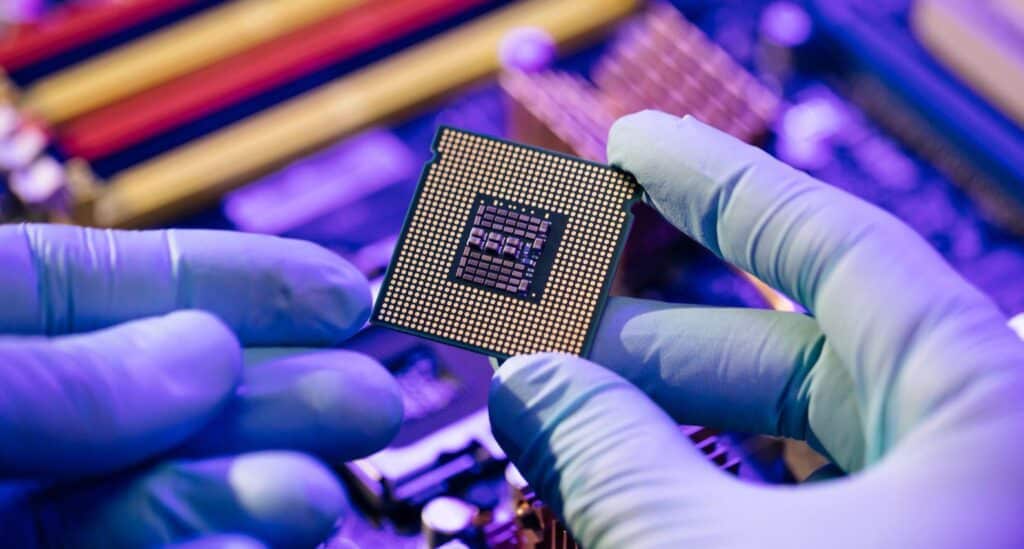Over the past year, a global shortage of semiconductor chips has caused disruptions in industries ranging from automotive to consumer electronics. The shortage has been so severe that some companies have had to reduce or halt production, leading to supply chain disruptions and longer wait times for products. In this article, we’ll explore the reasons behind the semiconductor chip shortage, the industries affected by it, and what it means for the future of technology.
Semiconductor Chip & Reasons for Shortage
Before we dive into the reasons behind the shortage, it’s important to understand what a semiconductor chip is and how it is used. A semiconductor chip is a small electronic device made from semiconductor materials such as silicon. It serves as the “brain” of electronic devices, allowing them to process data and perform calculations. Semiconductor chips are used in a wide range of devices, from smartphones and computers to cars and home appliances.
There are several factors that have contributed to the global semiconductor chip shortage. The first factor is the COVID-19 pandemic, which has disrupted global supply chains and caused a surge in demand for electronics. As people around the world were forced to work and study from home, the demand for laptops, tablets, and other devices skyrocketed. At the same time, the pandemic also caused disruptions in the production of semiconductor chips. As factories shut down or reduced capacity to comply with social distancing guidelines, the production of chips slowed down. This led to a shortage of chips that has been felt across industries. Another factor that contributed to the shortage is the trade war between the United States and China. In 2018, the United States imposed tariffs on Chinese goods, including semiconductor chips. In response, China imposed tariffs of its own, leading to higher prices and reduced availability of chips. This has had a ripple effect across the global supply chain, as many companies rely on Chinese manufacturers for their chip supply.
Finally, the increase in demand for electric vehicles has also contributed to the shortage. Electric vehicles require a large number of semiconductor chips to operate, and the surge in demand for EVs has led to a surge in demand for chips as well. This has put further strain on the already limited supply of chips.
Industries Affected By the Shortage
The semiconductor chip shortage has had far-reaching effects, impacting industries ranging from automotive to consumer electronics. The automotive industry has been hit particularly hard, as cars now rely on semiconductor chips for everything from engine management to entertainment systems. Some automakers have been forced to reduce production or halt production altogether due to the shortage, leading to longer wait times for customers. The consumer electronics industry has also been affected by the shortage. Manufacturers of smartphones, laptops, and other devices have had to adjust production schedules and limit the number of products they release due to the shortage. This has led to longer wait times for customers and increased prices for some products. The shortage has also affected the home appliance industry. Manufacturers of refrigerators, washing machines, and other appliances rely on semiconductor chips to power their devices. With the shortage of chips, these companies have had to reduce production or delay the release of new products.
The semiconductor chip shortage has highlighted the importance of semiconductor chips in the modern world. As more industries rely on these chips to power their devices, the demand for chips will only continue to increase. This has led to increased investment in the production of chips, with companies like Intel and TSMC announcing plans to build new manufacturing facilities.


